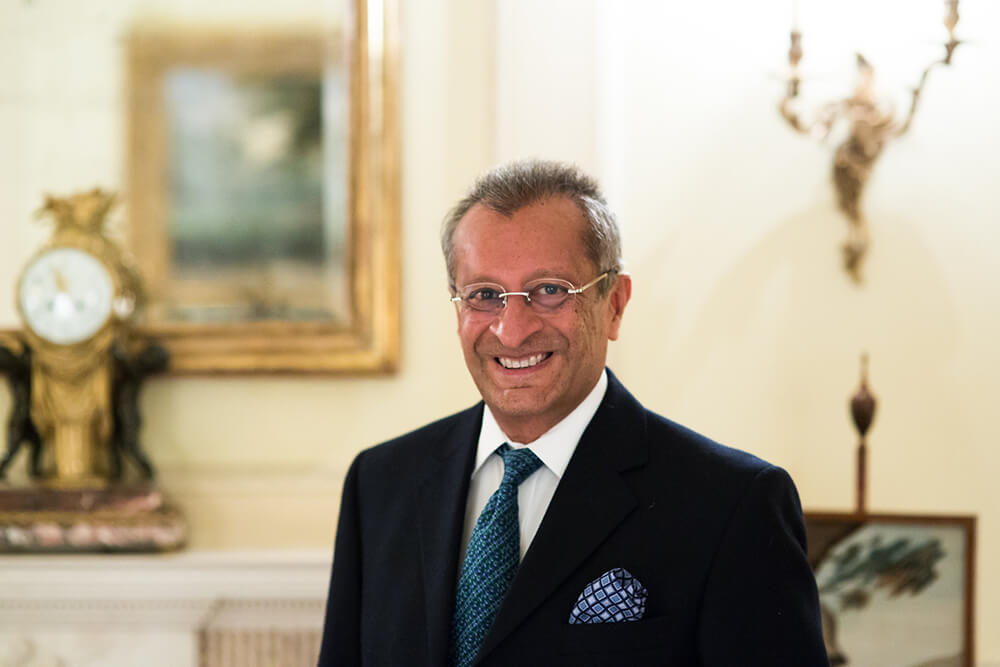 BBC News
BBC NewsBorrowing was £17.4bn last month, the second highest October figure since monthly records began in 1993.

These remarks were delivered by Mohamed Amersi last night at the 100th Centennial Dinner at the Guildhall
Distinguished guests, ladies and gentlemen, today we gather to remember a figure whose political will and conviction shaped not only her country but the global landscape of the late twentieth century—This is Maggie Thatcher, the Iron Lady. Rising from modest beginnings in Grantham, she became Britain’s first female Prime Minister in 1979, and for eleven years, she led with a determination that left an indelible mark on history.
Margaret was, above all, a leader of ideas—unyielding in her belief in free markets, individual responsibility, and the power of liberty over state control. She steered the country through profound economic transformation, privatizing industries, curbing trade union power, and championing deregulation. These policies, though deeply contentious, were pursued not for popularity, but from a steadfast conviction that reducing state intervention would unleash innovation and opportunity.
Internationally, her impact was equally profound. Alongside Ronald Reagan, she became a symbol of the West’s resolve during the Cold War, opposing Soviet expansionism and supporting dissident movements behind the Iron Curtain. Her partnership with the United States was central to the transatlantic alliance, and her directness—sometimes seen as blunt—was driven by an unambiguous view of right and wrong. It was said in the 1980s that Thatcher would march into the White House and tell Ronald Reagan what she thought – and then tell him what he thought. It is perhaps a little hard to imagine Sir Keir Starmer doing the same to President Donald Trump today.
On a personal note, I had the pleasure to meet the Iron Lady on many occasions but a few touch points, I will remember forever!
Margaret took elocution lessons at Bledisloe House, our first country retreat. We have pictures of the space designated as her recording studio. Subsequently, I had the privilege of doing an Exec MBA at the Said Business School at Oxford which if it wasn’t for her intervention on behalf of the Said family, the School would not have seen the light of the day. But one episode is etched in my memory: we were at dinner at a friend’s house in Belgravia where the chief guests were Margaret and Dennis. Other illustrious invitees included James Baker, former US Secretary of State, Sir Mark Weinberg, partners of the Carlyle Group and others. While waiting to be seated at this black tie dinner, suddenly Dennis was on the floor on all fours: Margaret, without batting an eyelid said “Oh Dennis what are you up to now”? Poor Dennis’s dentures had fallen out and he was on the floor groping to find them. At the same dinner, she and I spoke about former US Presidents, I said I had just shaken hands with one of them who will remain nameless: in her headmistress voice, she admonished me by saying how dare I do that, he was a supporter of the IRA!
In remembering Margaret Thatcher tonight, we do not seek to smooth over the controversy, nor to ignore the divisions she caused. Instead, we recognize a leader who changed the course of her nation’s history by the force of her will and the power of her ideas. She was, in her own words, not for turning—and in the end, neither was history’s judgment of her. Today, whether we debate her policies, praise her accomplishments, or reflect on her mistakes, we do so in a world shaped by her choices. That is perhaps the ultimate mark of a consequential life.